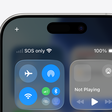HomePod Will Support Spatial Audio for Apple Music, But Not Lossless Audio
Apple Music will be gaining support for two new audio formats in June, including Spatial Audio and Lossless Audio, but MacRumors has received confirmation that the HomePod and HomePod mini will not support Lossless Audio.
Apple's website does indicate that the HomePod will support Spatial Audio, but it's unclear if this includes the HomePod mini.

Spatial Audio, based on Dolby Atmos, is an immersive three-dimensional audio format that enables musicians to mix music so it sounds like the instruments are all around you in space. On the other hand, Lossless Audio refers to audio recordings that have been compressed without any reduction in the overall quality of the audio, which can result in an improved listening experience, although the difference is not always obvious.
Apple Music will have two tiers of lossless audio, including standard "Lossless" audio up to 48kHz and "Hi-Res Lossless" audio that ranges from 48kHz to 192kHz. Apple said "Hi-Res Lossless" will require external equipment like a USB digital-to-analog converter.
Spatial Audio and Lossless Audio will be available in June for all Apple Music subscribers at no additional cost on devices running iOS 14.6, iPadOS 14.6, macOS 11.4, and tvOS 14.6 or later, according to Apple. Presumably, there will also be a companion HomePod software update that enables Spatial Audio support in time for the feature's launch.
Spatial Audio will be available for thousands of tracks at launch, with more to be added regularly. Lossless audio will be available for 20 million tracks at launch, and this will rise to 75 million by the end of the year.
Popular Stories
iOS 27 is still many months away, but there are already plenty of rumors about new features that will be included in the software update.
The first beta of iOS 27 will be released during WWDC 2026 in June, and the update should be released to all users with a compatible iPhone in September.
Bloomberg's Mark Gurman said that iOS 27 will be similar to Mac OS X Snow Leopard, in the sense...
Apple is planning to debut a high-end secondary version of AirPods Pro 3 this year, sitting in the lineup alongside the current model, reports suggest.
Back in September 2025, supply chain analyst Ming-Chi Kuo reported that Apple is planning to introduce a successor to the AirPods Pro 3 in 2026. This would be somewhat unusual since Apple normally waits around three years to make major...
MacBook Pro availability is tightening on Apple's online store, with select configurations facing up to a two-month delivery timeframe in the United States.
A few 14-inch and 16-inch MacBook Pro configurations with an M4 Pro chip are not facing any shipping delay, but estimated delivery dates for many configurations with an M4 Max chip range from February 6 to February 24 or even later. At...
Over the last few months, rumors around the iPhone 18 Pro's front-panel design have been conflicted, with some supply-chain leaks pointing to under-display Face ID, reports suggesting a top-left hole-punch camera, and debate over whether the familiar Dynamic Island will shrink, shift, or disappear entirely.
Today, Weibo-based leaker Instant Digital shared new details that appear to clarify the ...
While the iPhone 18 Pro and iPhone 18 Pro Max are not expected to launch for another eight months, there are already plenty of rumors about the devices.
Below, we have recapped 12 features rumored for the iPhone 18 Pro models, as of January 2026:
The same overall design is expected, with 6.3-inch and 6.9-inch display sizes, and a "plateau" housing three rear cameras
Under-screen Face ID...





















